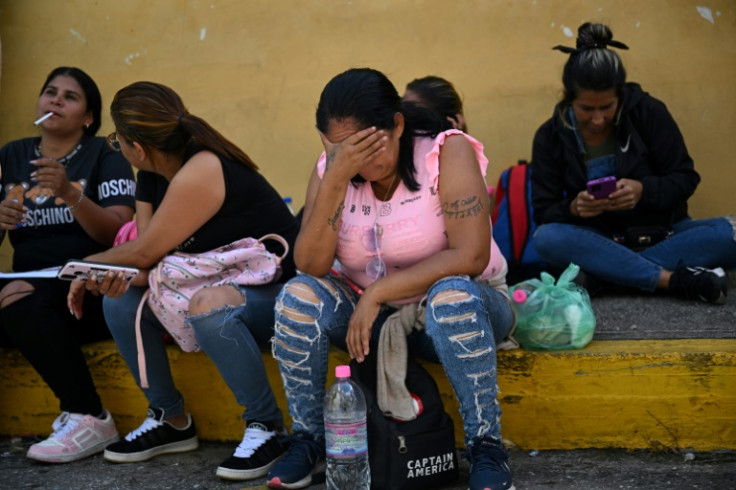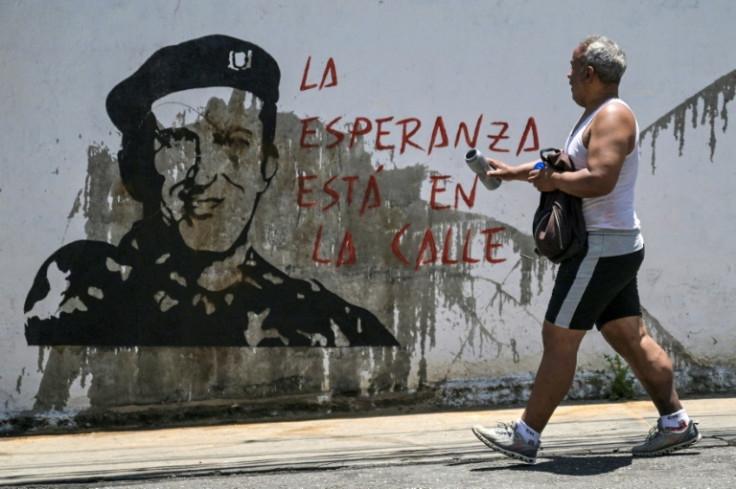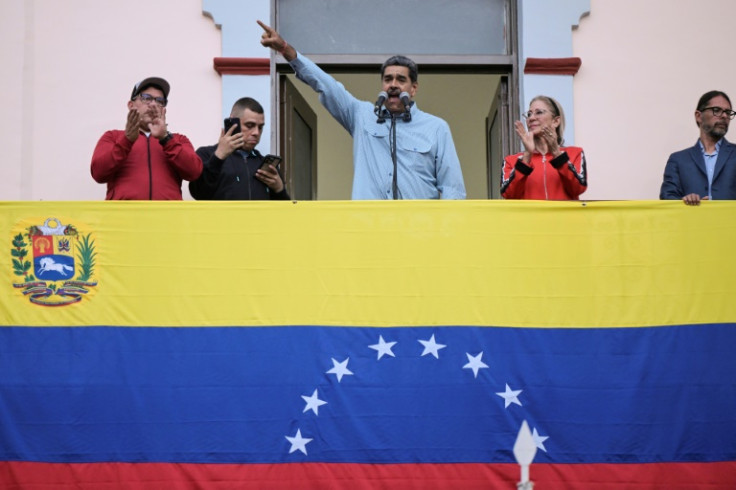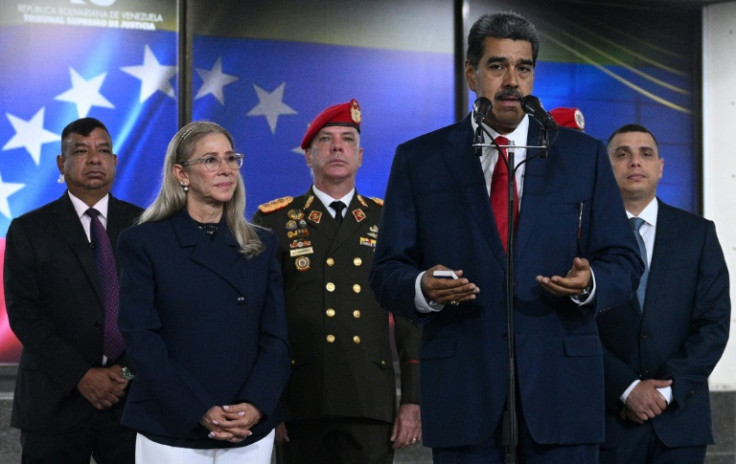Maduro Win Ratified As More Nations Recognize Rival As True Victor

Venezuelan authorities on Friday ratified Nicolas Maduro's election victory as the number of nations recognizing his opposition rival as the true winner mounted.
Gripped by anxiety after Sunday's disputed presidential vote, the oil-rich nation braced for fresh protests as both Maduro and the opposition called for their supporters to demonstrate this weekend.
Argentina, Ecuador, Uruguay and Costa Rica on Friday recognized opposition candidate Edmundo Gonzalez Urrutia as the president-elect of Venezuela, joining the United States and Peru in rejecting the official results.
Venezuela's election authority meanwhile ratified Maduro's win with 52 percent of the vote and said Gonzalez Urrutia had garnered 43 percent of ballots.
Maduro, 61, has reacted fiercely to criticism of his victory and has vowed to lock up opposition leader Maria Corina Machado and her presidential candidate Gonzalez Urrutia, saying they "should be behind bars."
Gonzalez Urrutia did not show up to a hearing at the Supreme Court after Maduro requested the tribunal investigate and certify the election result.
However, other opposition candidates summoned to the hearing called for a detailed vote count to be made public.
Voting records "are fundamental for transparency, they are fundamental for peace," said Enrique Marquez, who also ran against Maduro, as part of a smaller opposition group.
Machado, who had been barred from running herself, wrote in the Wall Street Journal that she was in hiding and "fearing for my life," along with other opposition leaders.
She also called on supporters to gather on Saturday "in every city" to protest Maduro's reelection.
"We remain firm and tomorrow we will take to the streets," opposition member Delsa Solorzano told a press conference.
"Maria Corina is fine ... she will be with us" at the march, she added.
Maduro, for his part, has called for daily mobilization, with "the mother of all marches to celebrate the victory of peace" to be held Saturday.
The NGO Foro Penal reported 11 dead in protests that erupted on Monday and Tuesday as Venezuelans took to the street in anger, saying their vote had been stolen. Machado said at least 20 people had been killed.
The crackdown on protests has sparked fear among opposition supporters.
"We have dead, wounded, detainees, missing people... People know it. They are afraid. They know they are going to find themselves facing armed people ... ferocious wolves," said Katiusca Camargo, an activist in the Petare slum in eastern Caracas.
The opposition this week launched a website with copies of 84 percent of ballots cast, showing an easy win for Gonzalez Urrutia. The government claims these are forged.
Top US diplomat Antony Blinken said Thursday there was "overwhelming evidence" that Gonzalez Urrutia had won the election.
On Friday, Argentine Foreign Minister Diana Mondino said that Gonzalez Urrutia was the "legitimate winner and president-elect." Peru has also recognized the 74-year-old retired diplomat as the rightful winner.
Uruguay Foreign Minister Omar Paganini said "it is clear" Gonzalez Urrutia "obtained the majority of votes." Ecuador said Gonzalez Urrutia was the "legitimate winner" of the vote and Costa Rica said he was the "indisputable" winner.
Argentina, Uruguay, Peru and Costa Rica are among eight critical Latin American nations whose diplomatic staff have been asked to leave Venezuela since the election. Caracas also withdrew its staff from those countries.
Brazil has assumed custody of the Peruvian embassy as well as the Argentine embassy, which is housing six Venezuelan opposition figures seeking safety from authorities.
In a joint statement, the governments of Brazil, Colombia and Mexico urged an "impartial verification" of the result, also calling for Caracas to publish voting data broken down by polling stations.
Sunday's elections were held in the shadow of Maduro's warnings of a "bloodbath" if he were to lose, and amid widespread fear the vote would be rigged.
Authorities said more than 1,000 people were arrested in protests that erupted after the election.
Maduro has led the oil-rich country since 2013, presiding over a GDP drop of 80 percent that pushed more than seven million of once-wealthy Venezuela's 30 million citizens to emigrate. Experts blame economic mismanagement and US sanctions for the collapse.
He is accused of locking up critics and harassing opponents in a climate of rising authoritarianism.
Maduro's previous reelection, in 2018, was rejected by dozens of Latin American as well as the United States and EU members.
Years of damaging US sanctions have failed to dislodge the president, who enjoys loyalty from the military leadership, electoral bodies, courts and other state institutions, as well as the backing of Russia, China and Cuba.



© Copyright AFP 2025. All rights reserved.





















